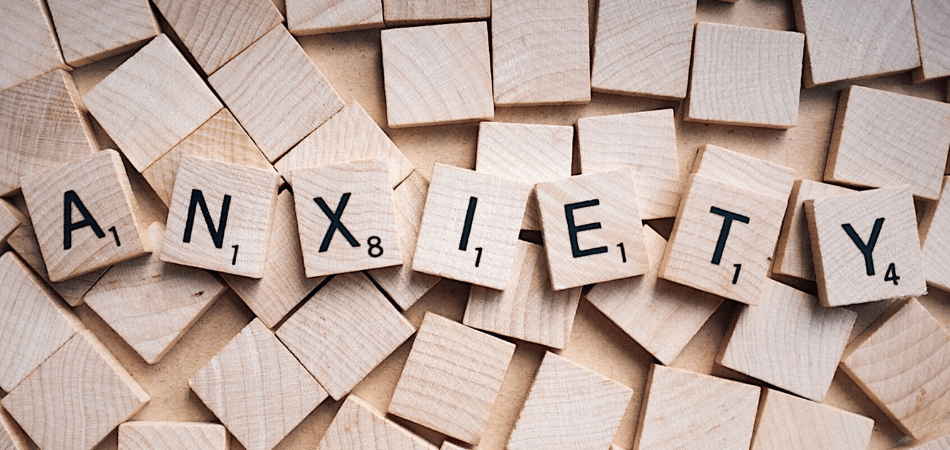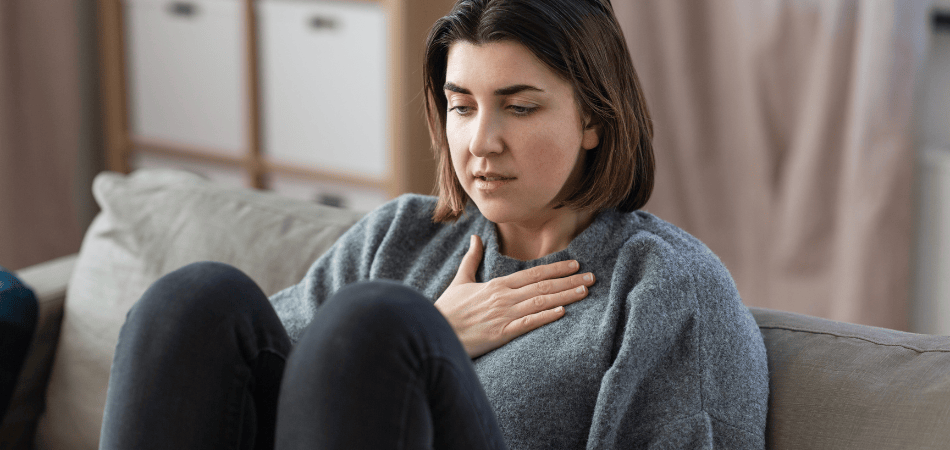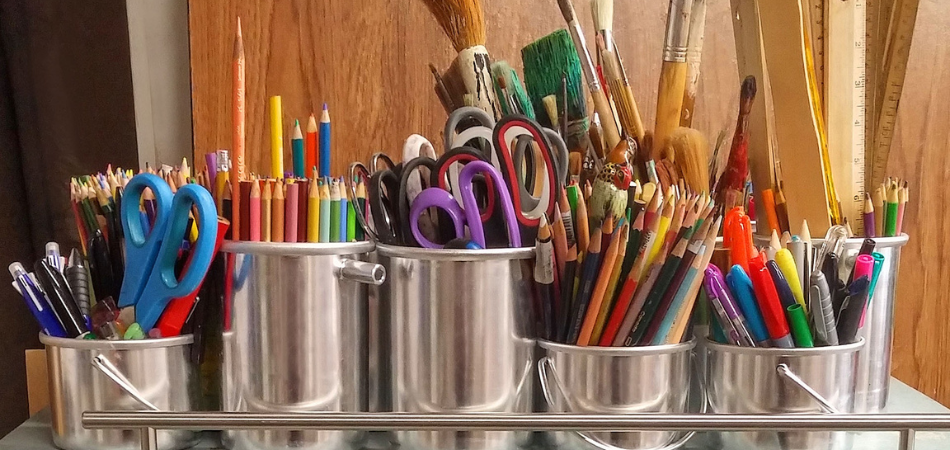Anxiety and addiction
For many of us, feeling anxious from time to time is a normal part of life. Whether we’re worried about an upcoming work presentation or stressing over a personal matter, anxiety is something that most of us experience on a regular basis. However, for people with an anxiety disorder, the reality is much more than just occasional jitters. Anxiety disorders can have a profound impact on a person’s day-to-day life and there are more than eight million people living with an anxiety disorder in the UK alone. For those struggling with addiction, anxiety disorders can make the road to recovery even more difficult as they can prevent you from seeking help enabling the two conditions to continue exacerbating each other.
What is the difference between anxiety and an anxiety disorder?
Anxiety is a normal emotion that we all experience occasionally. It’s the feeling of worry, nervousness or unease about something that’s going to happen in the future. We might feel anxious about an upcoming job interview, a first date or a big life event like getting married or having a baby. For most people, anxiety is short-lived and manageable.
Anxiety disorders, on the other hand, are much more serious and can have a debilitating effect on a person’s life. They can make it hard to function at work, socialise with friends or even just leave the house. Anxiety disorders produce chronic symptoms which can feel like an enormous weight on your back at the best of times but particularly if you are suffering from addiction which in itself can be a huge burden.
What are the most common anxiety disorders?
There are a number of different anxiety disorders with some people suffering from both the disorder and addiction at the same time. Here are some of the most common anxiety disorders and why they can make it even more complicated for you if you have an addiction:
Generalised anxiety disorder (GAD)
This is when a person feels anxious about a range of different things and the anxiety is not linked to any one particular event or situation. Suffering from GAD and addiction at the same time can make it hard to manage both triggers and fuel each other. Some people with GAD are too anxious even to leave their homes which may result in them spending more time online which can lead to internet addiction or addictions to gaming, social media or online gambling.
Social anxiety disorder (SAD)
Also sometimes called social phobia, social anxiety disorder is when a person feels anxious about social situations and is afraid of being judged or embarrassed. If you have SAD and are addicted to alcohol, you may drink before social situations in order to ease your anxiety. This can then lead to you feeling more anxious as you worry about being judged for your drinking which will cause you to drink more.
Panic disorder
This is when a person experiences sudden and intense episodes of anxiety, known as panic attacks. These can be very frightening and may make it hard to leave the house or participate in activities that you enjoy. If you have a panic disorder and are addicted to drugs, you may use drugs in order to try and stop the panic attacks. However, this can then lead to more anxiety as you worry about running out of drugs or being caught with them which will in turn fuel your drug abuse to cope with the heightened symptoms.
Obsessive-compulsive disorder (OCD)
This is when a person has intrusive and unwanted thoughts, known as obsessions, which make them feel very anxious. They may then try to relieve this anxiety by carrying out compulsions, such as washing their hands repeatedly or checking that doors are locked multiple times. If you suffer from OCD and addiction, your obsessions may be around your addiction, such as thinking about using drugs or gambling.
Why do anxiety and addiction co-occur so often?
Addiction is being unable to stop using a substance or engaging in a behaviour, even though it’s causing problems in your life. People struggling with anxiety disorders often develop a dual diagnosis of addiction and anxiety as a result of self-medicating to try and relieve their symptoms.
For instance, people with social anxiety disorder often drink alcohol or take drugs to try and ease their anxiety before or during social events. However, as you begin to rely more and more on substances to cope, you can develop an addiction where you are unable to control your use.
Using drugs or alcohol, or partaking in any addictive behaviour to cope with anxiety disorders can rapidly descend into a never-ending spiral. The substances or behaviours may numb the anxiety momentarily but ultimately create more problems down the line because as addiction develops, it can cause more severe anxiety disorder symptoms.
Common misconceptions about anxiety and addiction
Addiction and anxiety disorder are both commonly misunderstood and so people who suffer from both conditions are sometimes met with stigma. Finding people to talk to about your situation who understand can be difficult so it is important that society educates itself on the reality of anxiety and addiction. Here are some common misconceptions about anxiety and addiction and the reality that people should know:
“Having an anxiety disorder is just like being a bit stressed all the time”
Anxiety disorders are not simply feeling stressed or worried from time to time. They are serious mental health conditions which can have a significant impact on everyday life. When anxiety and addiction are present at the same time, it can be extremely difficult to cope and even explain to loved ones how you are feeling.
“People with anxiety disorders are just shy or weak”
This couldn’t be further from the truth and, in fact, many people who suffer from addiction and anxiety disorders are incredibly strong and have had to find ways to cope with their condition in order to live relatively normal lives. For example, those with social anxiety and addiction may have to force themselves to socialise and be around people even when it makes them very anxious.
“You could just ‘snap out of it’ if you really wanted to”
Addiction and anxiety disorders are not conditions that anyone can just snap out of. They are real, serious mental health conditions which require professional help and support to recover from. If you know someone who is struggling, the best thing you can do is be there for them and offer your support.
How Liberty House treats addiction in people with anxiety disorders
While Liberty House does not provide treatment for anxiety disorders themselves, the holistic therapies in our comprehensive rehab treatment programmes can have a huge beneficial effect on those struggling with anxiety. Our experienced team will also make sure that any anxiety medication you have been prescribed by your GP is administered correctly to you during your stay.
Some of our holistic therapies which have been shown to help relieve anxiety include:
- Group therapy: Not only does group therapy offer those battling addiction a chance to express themselves, but it also gives the opportunity to build important skills like communication. In a treatment setting, working in groups can help ease social anxiety by providing a safe space to practise talking with new people.
- Individual therapy: Some people with addiction and social anxiety disorder may find speaking in front of a group of strangers difficult at first. During individual therapy, you can work one-on-one with a therapist to address your specific issues and fears in a safe and confidential setting.
- Cognitive behavioural therapy (CBT): CBT is a type of therapy that helps people understand the connection between their thoughts, feelings and behaviours. It can be a particularly helpful addiction therapy for those with anxiety disorders as it teaches skills like how to manage anxiety-inducing thoughts and situations.
- Mindfulness: Mindfulness is a type of meditation which helps people focus on the present moment and accept their thoughts and feelings without judgement. Research has shown that mindfulness can help reduce anxiety, depression and stress. This will help you with both the symptoms of your anxiety disorder and prevent relapse which often results from these states.
- Art therapy: Art therapy is a type of therapy that uses art as a way to express emotions and explore personal issues. It can be helpful for those with anxiety disorders as it allows you to express yourself in a creative and non-verbal way.
The next step
If you are suffering from anxiety and addiction, there is no need to face them alone. Get in touch with Liberty House today and our admissions team will be happy to chat with you about our addiction counselling and treatment programmes and how we can help you recover.







